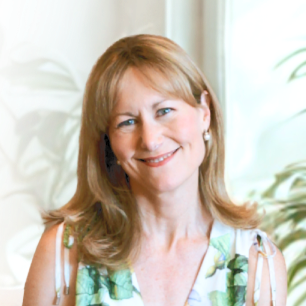When Your Body Writes a New Story: Navigating Energy and Clarity in Midlife
- Jennifer Berryhill

- Nov 11, 2025
- 3 min read
Updated: Jan 2

Here's what nobody tells you about midlife: your body starts speaking a different language.
Some mornings I wake up electric, ready to tackle my day with the mental clarity of a laser. Other days? It's like wading through honey just to remember why I opened the refrigerator. My energy levels swing wider than they ever have. The shifts feel sharper, more dramatic, less predictable.
And you know what my first instinct was? To fight it. To will myself back to "normal." To mentally resist every single change.
But here's what I'm learning: while my mind wages war against reality, my body is already adapting.
My body doesn't need my permission to evolve. It's already figuring out new rhythms, new patterns, new ways of functioning in this hormonal landscape. It's living in the now, not clinging to how things used to be.
The Hidden Cost of Unexamined Thoughts
There's a concept in mindfulness work that resonates deeply with me: our unquestioned thoughts cause more suffering than our actual circumstances.
When I started paying attention to the stories I was telling myself about my changing energy and cognition, I found a whole catalogue of unexamined assumptions:
"There's something fundamentally wrong with me." (Rather than: I'm experiencing a normal biological transition)
"I should function exactly as I did a decade ago." (Rather than: each life stage has its own strengths)
"Forgetting things means I'm deteriorating." (Rather than: my brain is reorganizing, not failing)
"Fatigue equals personal failure." (Rather than: my body is communicating its needs)
"This trajectory only points downward." (Rather than: I can optimize for where I am right now)
"Rest is weakness." (Rather than: strategic recovery is power)
These assumptions—not the actual physical experiences—were creating my distress.
Growth Disguised as Discomfort
What if I told you that what feels like falling apart is actually opening up?
Every major transition—and midlife is definitely that—pushes us to reconsider everything we thought we knew. About our bodies. About our capabilities. About what vitality actually means.
This reconsideration? It's uncomfortable. Sometimes it's more than uncomfortable.
But here's the thing: when we get curious about our assumptions instead of just accepting them as truth, that's when real transformation becomes possible.
Asking Better Questions
Instead of "What's wrong with me?" I'm learning to ask:
"What is my body trying to tell me?"
"What if these energy patterns are information, not evidence of decline?"
"How might I support my brain in ways that honor its current needs?"
"What if slowing down strategically actually creates more sustainable vitality?"
When I stopped demanding that my body behave like it did in my thirties and started investigating what it actually needs now, everything shifted.
I discovered:
Nutrition and movement strategies specifically designed for hormonal changes
Sleep patterns that work with my circadian rhythms NOW, not a decade ago
Brain support protocols that enhance the type of cognition available to me at this stage
The deep satisfaction that comes from working WITH my body instead of against it
That the wisdom I've gained is its own form of mental sharpness—different from rapid recall, but equally valuable
The Gift Hidden in Discomfort
Transformation often waits on the other side of difficulty. But we have to move through the difficulty first, and that part? That part is genuinely challenging.
If you're navigating the unpredictability of midlife energy and cognition right now, feeling confused or frustrated or uncertain...
You're not failing. You're evolving.
Your task isn't to shame yourself into a body that no longer exists. Your task is to question the stories creating your suffering, and to approach your current experience with genuine curiosity.
Self-compassion doesn't mean settling for less. It means expanding your vision of what "thriving" can look like in this rich, complicated, powerful phase of life.
This week, when you notice your energy dipping or your mind feeling foggy—can you pause before judging?
Can you ask: "What if my body is teaching me something valuable instead of failing me?"
Because maybe your midlife self is wiser than you think.
And if you're navigating this transformation too?
You have the power to do what you need to do.
Ready to take back your Energy, Focus, and Vitality?
Here's the link to book your Free Strategy Call: 1:1 Coaching
This content is protected by copyright law. No portion of this article may be reproduced, distributed, or transmitted in any form without written permission. For inquiries about sharing or republishing, contact info@jenniferberryhillwellness.com
![JBW_Logo2 [Recovered].png](https://static.wixstatic.com/media/8d2db4_82031c3c4e1845139bccbb5210304f4a~mv2.png)




Comments